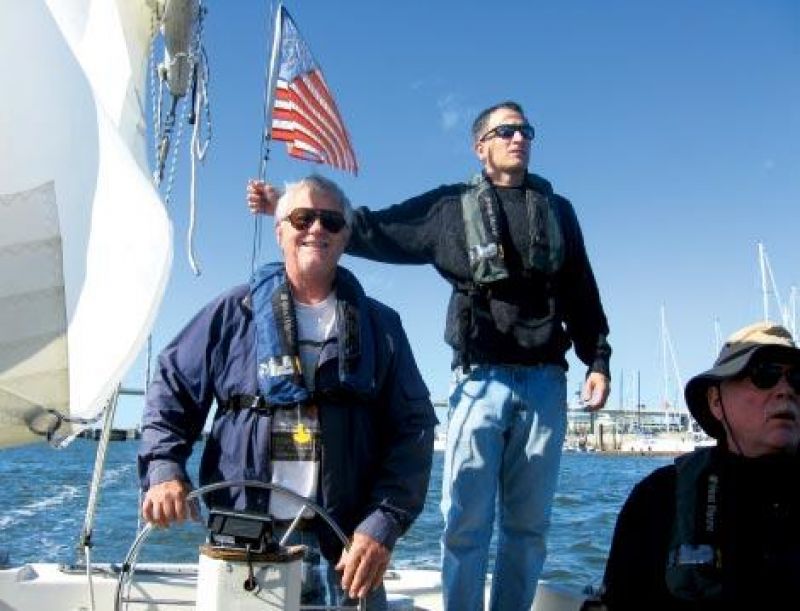
For military troops, the journey home from war is anything but smooth sailing. The U.S. government reports that 11 to 20 percent of veterans of the Iraq and Afghanistan wars suffer from post-traumatic stress disorder (PTSD), and one in five women has been sexually assaulted. “Many face depression, anxiety, and social withdrawal,” says Ron Acierno, director of the Ralph H. Johnson VA Medical Center PTSD Clinical Team, which uses exposure therapy—the repeated exposure to memories of the trauma and triggers for anxiety such as crowded spaces—to desensitize patients to harrowing memories. While the approach diminishes symptoms, says Acierno, “we weren’t taking the next step to help reintegrate these patients into the community.” So in the spring of 2010, he and several partners launched Veterans on Deck (VoD). “We wanted to provide the opportunity to explore a socially stressful situation that had the potential for a positive outcome if people worked together.”
Each week, VoD welcomes veterans struggling with PTSD, military sexual trauma (MST), or mental illness aboard three 26-foot keelboats for a Charleston Harbor sail. Led by volunteer captains and counselors (including several program grads), veterans collaborate to make the boat go. “We want people to argue, a sail to rip, the boat to run aground, something to break,” says Acierno, “then we want the crew to work together to fix it. This is when good things happen—when stress is confronted and overcome as a group.” To a veteran who has trouble entering a crowded space or standing among boisterous kids, being confined on a boat with seven others is stressful. But when participants overcome their fears and connect with those on board to capture the wind, forward progress blows through.
The program has helped leagues of participants. Take one MST victim who was virtually housebound before encountering VoD. She visited Ashley Marina three times before even venturing down to the docks. “When she finally did, there was a lot of crying…but also smiling,” remembers Acierno. After about four months of weekly sailing, she rejoined the world around her, earning a job as a VA peer counselor. And last year, she traveled to the National VA Summer Sports Clinic in California to crew on a vessel in a competition. Like many VoD participants, she’s taken over the helm of her own healing voyage.